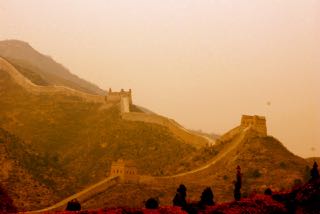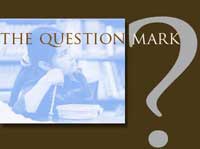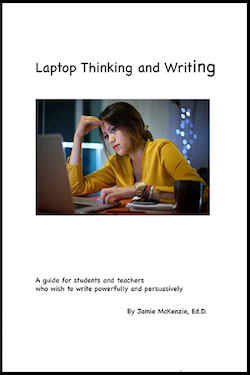|
- Go find out about China
- Go find out about Hong Kong or Shanghai or Beijing
- Go find out about the Opium War
- Go find out about the Great Wall of China
- Go find out about Mao or Chiang Kai-shek or Xi Jinping
- Go find out about the Chinese COVID vaccine
Such research topics require little more than copying and pasting. Thinking is not necessary.
Back before the Internet, such research took lots of manual labor as students would take notes from books, changing one word in every sentence to avoid plagiarism (LOL). Now they merely need to scoop and smush. The bigger the collection of information, the better. There is little learning.
We should cease topical research and replace it with inquiries that require fresh thinking and imagination. This article will propose some exciting ways to accomplish this shift. If we fail to teach the young to make up their own minds by finding and weighing evidence, they grow up to be adults who are susceptible to manipulation and the falsehoods of demagogues.
Facts matter. Evidence matters. In recent times, an outgoing president falsely claimed that the election was stolen. When he went to court to challenge the results, every court turned him down because the claims were false and made without credible supporting evidence. Even so, millions of Americans to this day believe his false claim.
Students should instead write a Great Report
|
The Great Report
Creates something new Grapples with a big challenge Explores the unknown Shares insights and understandings that are perceptive and original Awakens curiosity Entertains, delights and illuminates
|

Order the Great Report |

Focus on questions of import
One of the best ways to replace the drudgery of topical research is to organize the inquiry around questions of import. I have written extensively on this approach.
Studying the Great Wall of China
At a time when the American President and Congress were arguing about the value of building a wall along the border with Mexico, the time has been ripe for thoughtful exploration of walls and what they can do (or not do) for neighbors.
Sadly, many students are burdened with the mere collection of facts instead of exploring the intriguing issues and questions suggested by such wall building.
- How long is the Great Wall of China?
- How tall is the Great Wall of China?
- How long did it take to build the Great Wall of China?
- How many soldiers were needed for the Great Wall of China?
- How much did the Great Wall of China cost?
- What did each of the following dynasties contribute to the building of the Wall: Qin, Han, and Ming?
 Photo © J.McKenzie Photo © J.McKenzie
There are so many more intriguing and important questions to ask about the Great Wall and walls, in general — questions that will resonate with current events and seem relevant to the students' times.
 Photo © J.McKenzie Photo © J.McKenzie |
- Did the Great Wall do any good?
- How much did it really cost? (literal meaning vs. other meanings)
- Who paid the price? Was it worth it?
- Why do we build walls?
- Who builds walls?
- When are walls a good idea?
- How does Robert Frost's poem "Mending Wall" relate to the Great Wall of China?
- What other poems and songs can you find that help us to think about the Great Wall of China as well as other walls in history like The Berlin Wall and the wall proposed by President Trump?
- How has your study of the Great Wall shaped your feelings and thinking about the wall proposed by the Trump Administration? To what extent do you agree or disagree with the proposal and why?
|

|
When studying important people
Such questions of import can also improve the study of important people.
Toward this end, I created the Biography Maker at http://fno.org/bio/biomaker.htm.
Questions of import from the Biography Maker are listed below.
|
Biography Questions of Import
- In what ways was the life remarkable?
- In what ways was the life despicable?
- In what ways was the life admirable?
- What human qualities were most influential in shaping the way this person lived and influenced his or her times?
- Which quality or trait proved most troubling and difficult?
- Which quality or trait was most beneficial?
- Did this person make any major mistakes or bad decisions? If so, what were they and how would you have chosen and acted differently if you were in their shoes?
- What are the two or three most important lessons you or any other young person might learn from the way this person lived?
- Some people say you can judge the quality of a person's life by the enemies they make. Do you think this is true of your person's life? Explain why or why not.
- An older person or mentor is often very important in shaping the lives of gifted people by providing guidance and encouragement. To what extent was this true of your person? Explain.
- Many people act out of a "code" or a set of beliefs which dictate choices. It may be religion or politics or a personal philosophy. To what extent did your person act by a code or act independently of any set of beliefs? Were there times when the code was challenged and impossible to follow?
- What do you think it means to be a hero? Was your person a "hero?" Why? Why not? How is a hero different from a celebrity?
The Biography Maker leads students through the research and writing process.
Comparing people or cities
Another excellent strategy to promote original thought is to ask students to decide which ship captain they would prefer or which general or which poet. They might also decide which city they would prefer if they were moving to a new state or country.

The comparison requires thought at the Evaluation level on Bloom's Taxonomy. The student must decide upon criteria that will be the basis for comparing the captains as shown in the diagram above, and then must gather evidence to see which captain does best.

Students should write a Great Report
|
The Great Report
Creates something new Grapples with a big challenge Explores the unknown Shares insights and understandings that are perceptive and original Awakens curiosity Entertains, delights and illuminates
|

Order the Great Report |
FNO Press is applying for formal copyright registration for articles.
Unauthorized abridgements are illegal.
|
 Photo © J.McKenzie
Photo © J.McKenzie



 Photo © J.McKenzie
Photo © J.McKenzie Photo © J.McKenzie
Photo © J.McKenzie


